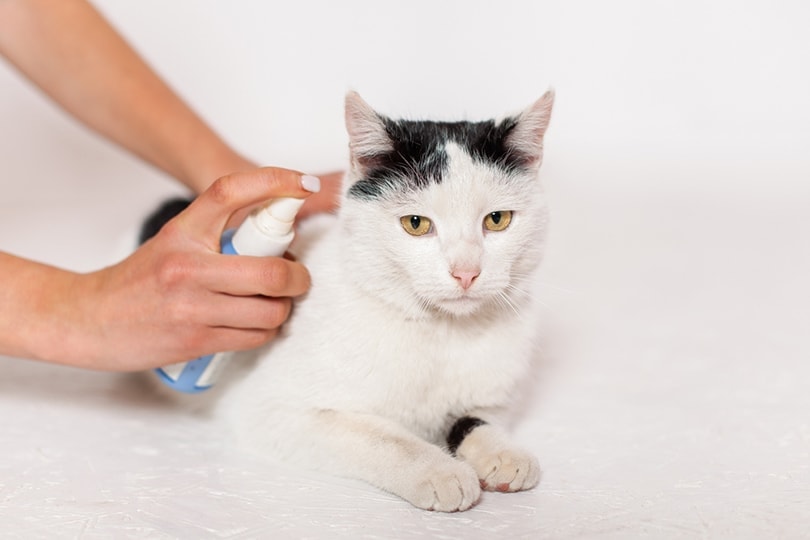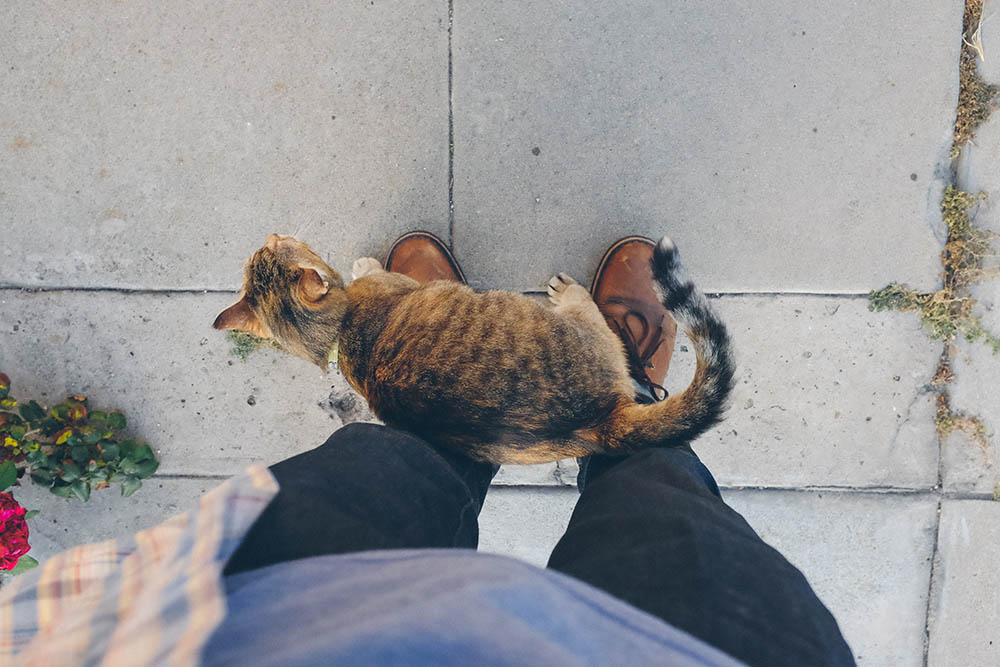What Is a Barn Cat? Differences, Origins, & Care
Updated on
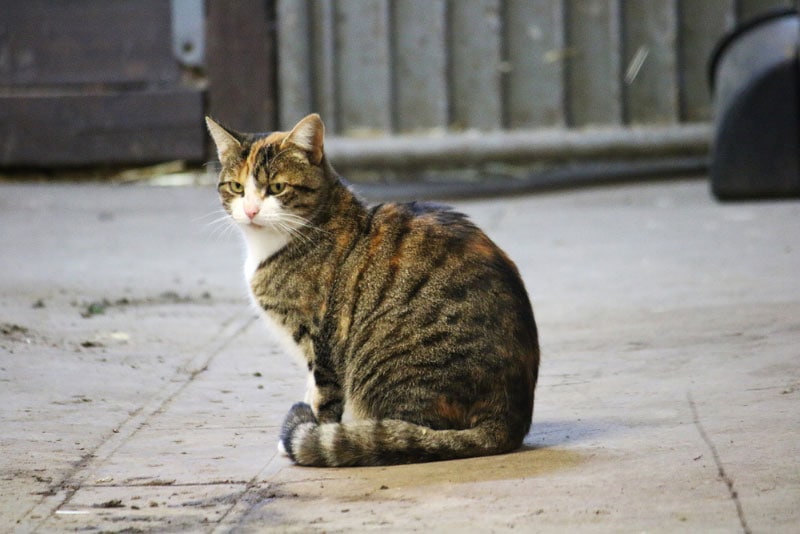
Most people have heard or read about barn cats in passing but possibly not given them much thought. They are, after all, very specialized felines that occupy a different niche than our domestic cats. Barn cats, also sometimes referred to as farm cats, are working cats that perform the vital job of vermin control around the farm.
Although they may develop an affection for people and become included in the family, many barn cats remain feral or semi-feral. These tough and independent kitties are survival specialists. Although many are genetically identical to our pampered pet cats, some look like an entirely separate breed. Their environment demands them to develop particular physical and behavioral traits that set them apart from pet cats.
Is a Barn Cat a Separate Breed?
Barn cats are not a separate and specific breed of cat. Barn cats can be any breed of cat, but it’s unusual for them to be purebreds. Instead, they are a glorious mix of many breeds. Regardless of their breeding, barn cats are physically exceptional and have retained all of their wild ancestors’ natural hunting instincts and prowess.
Most barn cats are descended from a long lineage of independent, outdoor-living feral or semi-feral cats. Their mothers teach them how to hunt and fend for themselves from a young age. It’s also not unusual for former pet cats to become semi-feral due to any number of reasons; sometimes, it is actually their preference. Other times they, unfortunately, lose their homes and adapt out of necessity. However, it’s not advisable to expect a cat bred and raised as a pet to adjust to being a barn cat.
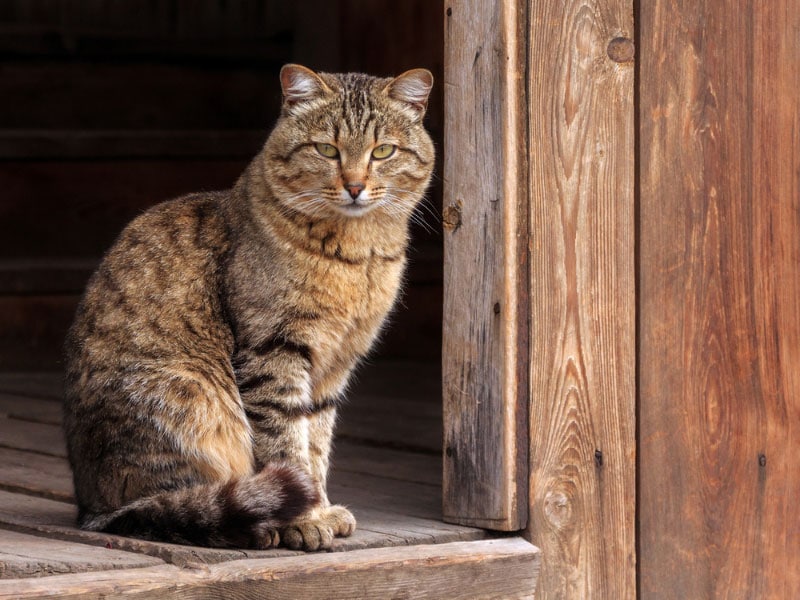
Origins of the Humble Barn Cat
Barn and farm cats have existed for as long as humans have had a relationship with domesticated cats. From as early as 7,500 BC, humans have been using cats to control the rodent population in their grain and crop storage areas. The earliest domestication of cats probably resulted from this mutually beneficial relationship between cats and humans.
Wild, indigenous cats were naturally drawn to these stores, which had equally attracted rodents. For humans, their food stores were protected from decimation by vermin, so they encouraged the cats to stick around. The earliest barn cats were the ancestors of our modern-day beloved pet kitties.
What’s The Difference Between a Barn Cat and a House Cat?
Although barn cats can be affectionate and double as pets and family members, some key differences set them apart from house cats.
Temperament
First, many barn cats prefer to distance themselves from the domestication of a pet cat. They are more independent, aloof, and less reliant on humans for emotional fulfillment. They don’t view humans as necessary for survival as many pet cats do. Many will remain feral or partly feral, although some become very affectionate and will include themselves in the family. Nevertheless, you are unlikely to witness the average barn cat snaking around a human’s leg or curling up on a lap for warmth and companionship.

Appearance
Secondly, barn cats often appear physically different to house cats. Although they vary in size, they are generally more powerful and athletic. They may look a little “rough around the edges.” This is a natural result of their more adverse living conditions. Their body language and other forms of communication might differ from those of your pet house cat.
Hunting Skills
Lastly, barn cats are finely tuned predators. Our beloved pet cats may surprise us with displays of their natural hunting instinct, but a barn cat is in a league of their own when it comes to providing for their nutritional needs. They hunt to survive, not for fun. Barn cats will play hunting games with prey to hone their instincts and help youngsters perfect their hunting skills.
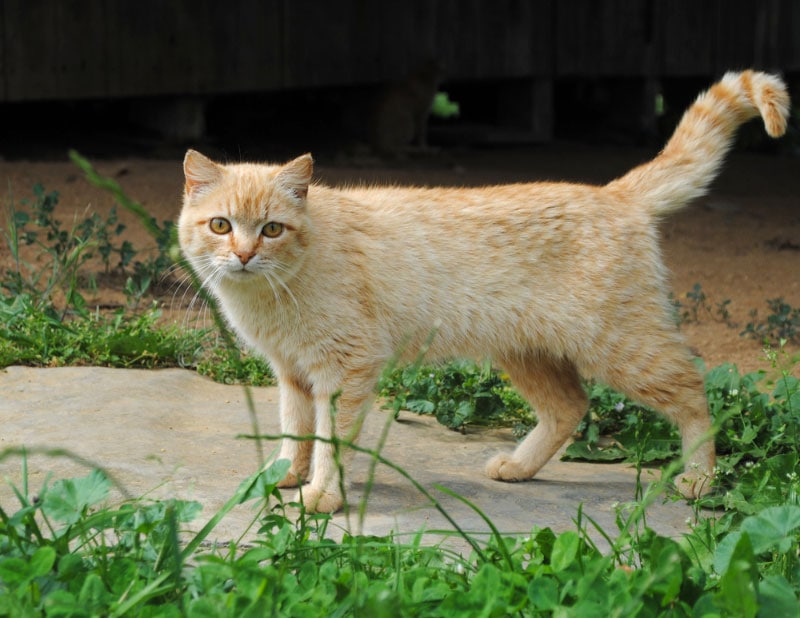
Should I Get a Barn Cat?
If you are thinking of getting a barn cat, you need to be sure you can provide them with the appropriate environment. Remember that they are tough, outdoor cats that prefer and thrive in conditions that would not suit house cats. They are independent, often aloof, and have a highly developed hunting instinct. They are suited to farms and smallholdings where they can live in barns, sheds, and other outbuildings.
If you want a pet cat to keep your lap warm, a barn cat is probably not the cat for you. Although they have tremendous personalities and you are likely to grow fond of them, you shouldn’t expect a barn cat to provide the same companionship as a pet cat.
Here’s a simple pros and cons list to consider before making a decision:
- Barn cats effectively control rodent populations in their range
- They help eliminate diseases spread to food and other farm animals by rodents
- They are low-maintenance, low-cost, hardy, and adaptable
- They are a pleasing and rewarding addition to any farm
- They may target other farm animals, such as poultry
- Barn cats can potentially spread disease if they are not healthy and well-cared-for
- They could roam where they are not welcome, such as neighboring farms
- Barn cats will breed prolifically if they are not sterilized
Caring For a Barn Cat
Overall, barn cats are self-sufficient and independent and can survive without your help. Nevertheless, there are several things you can do to enrich the life of your valued vermin exterminator.
1. Good Quality Food and Fresh Water
Your barn cat will get the bulk of their nutrition from pest control activities, but you can’t be sure that the food source will suffice at all times. Additionally, their energy requirements will increase in the winter months, and they will appreciate a little meal supplementation. You don’t need to provide meals with the regularity and consistency you would for your pet house cat, but having a bowl of kibble available will help fill any gaps in their nutrition. You should also ensure that your barn cat can always access fresh water.
2. Sterilization
Unsterilized cats multiply very quickly, and within a short time, you could find yourself with a colony of cats too large to be supported by the resident rodent population. With overpopulation comes unhygienic conditions, disease, and fights for territory and other resources. This is an altogether unpleasant scenario that could end up causing you and the cats distress. Sterilization is essential to prevent such a situation from developing.
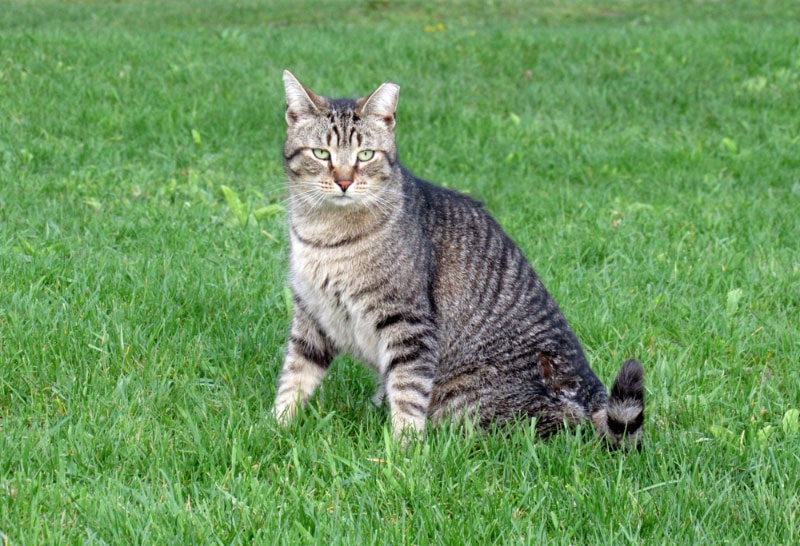
3. Veterinary Care
It may be difficult to round up your barn cat and transport them to the veterinarian for checkups and shots, but a concerted effort should be made to do so. In the long run, healthy kitties will cause less trouble to you and themselves and cost less. Vaccinations should be considered as they can minimize the risk of diseases that could be passed onto other livestock and humans. Rabies is a lethal, vaccine-preventable disease for which there is no cure. It can be transmitted from animals to humans.
4. Two’s Company
Most kitties like companionship. Some barn cats may be too afraid to approach the main homestead when they feel lonely, so consider getting a companion for your barn cat. If you haven’t yet acquired a barn cat, try and locate some farm cats looking for a new barn to call home.

Conclusion
Although technically the same species as our beloved, cuddly pet cats, the barn cat is different in many respects. They are, however, no less charming and endearing and are just as successful in squirming their way into our hearts and lives, leaving a lasting impression.
Whether to get a barn cat depends primarily on whether you can accommodate their living needs and preferences. Our pros and cons list and tips for caring for a barn cat can aid your decision-making process.
Featured Image Credit: Bianca Grueneberg, Shutterstock

